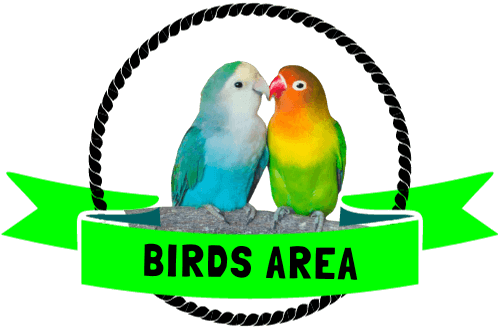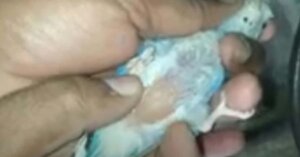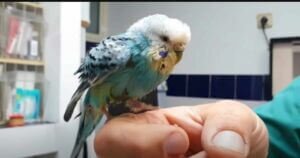Why My Budgie Poop is Watery?
Watery poop in budgies can be due to diet changes, stress, illness, or excess water intake. It might also signal an underlying health issue, especially if it persists.
Observing other symptoms can help identify the cause and guide you in taking action.
However, in this blog, I’ll break down the common causes of watery poop in budgies and offer simple steps to keep your pet healthy and happy.
Let’s dive in and explore why your budgie’s droppings might be more watery than usual.
Why My Budgie Poop Is Watery? Common Causes
- Excessive fruit or vegetable intake
- Stress or anxiety
- Change in diet
- Infection (bacterial, viral, or fungal)
- Parasites
- Poor water quality
- Overhydration
- Food intolerance or allergy
- Organ issues (liver, kidneys)
- Medications or supplements
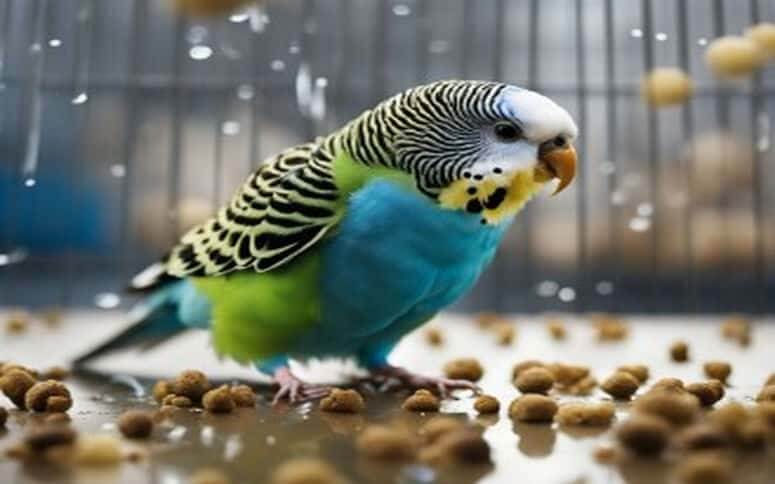
Noticing watery poop in your budgie can be alarming. Watery poop, also called diarrhoea, can occur for different reasons.
Let’s go through some common causes:
1. Diet: The Big Player
A sudden change in your budgie’s diet can lead to watery poop. It could be the reason you’ve recently introduced new foods like fruits, veggies, or seeds. For example, too much cucumber or lettuce can cause excess water in their droppings.
Poor Nutrition, lacking vitamins like A and D, can lead to watery poop. Ensure that about 75% of their diet is a quality seed mix and the rest is made of fresh foods.
Overfeeding fruits and greens high in water content can upset your budgie’s stomach. Mix new foods with the old diet over a week to avoid digestive issues.
2. Infections: The Unseen Culprit
Watery poop can be a sign of illness. Bacterial, viral, or fungal infections can upset your bird’s digestion. Diarrhea is a sign. It’s like when we eat something bad and feel sick.
Internal parasites like worms can cause loose droppings. Birds infected with Pesky Parasites may lose weight and become weak. They can throw off digestion, leading to watery droppings. This might cause poop that’s 20% more watery than normal.
Moreover, some common diseases affecting budgies include Psittacosis, Avian Gastric Yeast (AGY), and E. coli infections.
At a event, I heard Dr Sarah Parker, a bird veterinarian, said, "Persistent diarrhoea in budgies often indicates an underlying health issue. Seek veterinary advice if it lasts more than a day."
3. Toxins: The Hidden Danger
Even a small nibble of toxic substances, like some common houseplants, can lead to big problems. A few pecks at a toxic plant can cause changes in poop within hours.
4. Stress: The Silent Disruptor
Birds are sensitive creatures. Stress from changes in their environment, such as a new cage, different surroundings, or loud noises, can affect their digestive system, resulting in loose droppings.
- Signs to watch: If your budgie shows signs of fear or anxiety, like fluffed feathers or hiding, it may be stressed.
5. Organ Issues: The Serious Stuff
Liver or kidney problems change poop color and texture. These organs are crucial for waste processing. If they’re not working right, it can change the poop color and make it 50% more watery.
6. Drinking Excess Water
If your budgie drinks a lot of water, it may result in watery droppings. This behavior might happen if the bird is too hot, stressed or has a health condition like kidney problems.
During hot summer days, budgies tend to drink more to stay hydrated. This can temporarily lead to watery poop.
7. Poor Water Quality
Contaminated water can introduce harmful bacteria or chemicals into your budgie’s system, affecting its digestive health. Always provide clean, fresh water daily.
8. Temperature: The Delicate Balance
Budgies like room temperature between 18°C and 24°C (65°F to 75°F). Too hot or cold? Their digestion reacts, leading to watery poop.
9. Medicines: A Double-Edged Sword
Some medications, particularly antibiotics, can disrupt the natural balance of gut flora, leading to digestive issues. Always use medications and supplements as directed by a vet and monitor your budgie’s response.
10. Diseases: The Bigger Picture
Diseases like psittacosis change their droppings. If they have been watery for over 24 hours, it’s a red flag.
If watery droppings persist for more than a day or are accompanied by other signs of illness (such as lethargy, loss of appetite, or changes in behavior), it’s best to consult an avian veterinarian for a thorough check-up.
Symptoms Associated With Budgies Watery Poop
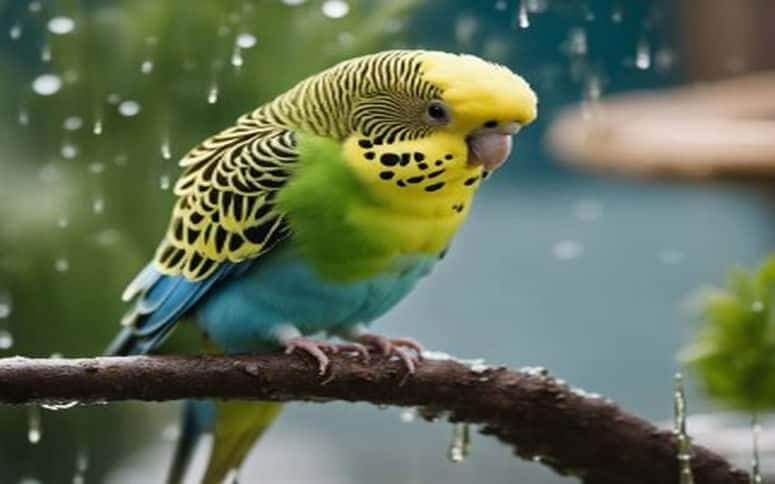
Watery poop in budgies can indicate underlying health issues. If your budgie is experiencing watery poop, it is vital to observe for additional symptoms and seek veterinary assistance if necessary.
- Increased lethargy or loss of energy.
- Decreased appetite or weight loss.
- Abnormal swelling in the abdomen.
- Soiled feathers around the vent area.
- Vomiting or regurgitation.
- Abnormal breathing or respiratory distress.
- Examining the colour and consistency of the watery poop may indicate specific health issues.
How Can I Diagnosis Watery Poop In Budgies?

So, you’ve noticed your budgie’s poop looks a bit watery? Don’t worry; let’s sort this out. First up, keep an eye on their droppings. You want to check how they usually look – the colour, the texture. Knowing what’s normal for your little friend is key.
Have more than one budgie? If one is not well, give it its own space. This helps you see how it’s doing without the others around. Watch out for any signs it’s not feeling great, like being quieter than usual or not moving much.
Now, think about what they’ve been up to. Their surroundings, what they eat – all this stuff matters. You’re a bit like a detective looking for clues.
If you notice the watery poop isn’t stopping, or if your budgie seems really off, it’s time to call the vet. They’re the experts and can really help.
When you visit the vet, bringing a sample of the watery poop is super helpful. It’s like giving the vet a piece of the puzzle to work with. They’ll check your budgie over, maybe run some tests, and tell you the best way to help.
Remember, the sooner you get on top of this, the better for your budgie. A quick response can make a big difference. Keep loving and caring for your feathered friend – they’re lucky to have you.
When to Worry and Seek Help
If watery poop continues for more than 24 hours, or if you notice other symptoms like weight loss, fluffed-up feathers, or lethargy, it’s time to consult an avian vet. Early treatment can prevent severe health issues.
How Can I Treat Green And Watery Budgie Poop?

Treating green and watery budgie poop involves addressing potential causes and promoting the bird’s health. However, it’s crucial to consult an avian veterinarian for accurate diagnosis and treatment.
Here are steps that can aid in addressing the issue:
- Isolation and Observation: Separate the affected budgie to monitor its droppings closely and prevent potential transmission to other birds.
- Ensure Hydration: The budgie should have access to clean, fresh water to prevent dehydration, especially if it is producing watery droppings.
- Assess Diet and Nutrition: Review the bird’s diet. Ensure it’s receiving a balanced and appropriate diet for its species, avoiding sudden changes in food.
- Environmental Factors: Ensure the bird’s environment is free from stressors, drafts, toxins, or sudden temperature changes.
- Seek Veterinary Care: Schedule an appointment with an avian vet. They can thoroughly examine, including faecal tests, to identify potential infections, parasites, or underlying health issues.
- Follow Vet Recommendations: Administer any prescribed medications or treatments as directed by the veterinarian.
- Quarantine and Monitoring: Keep the budgie quarantined until the vet confirms it is safe to reintroduce it to other birds.
Remember, self-treatment without proper diagnosis can be risky. Professional guidance from an avian veterinarian is crucial to determine the underlying cause and provide appropriate treatment for your budgie‘s condition.
Read more
How Can I Prevent Watery Poop In Budgies?
Keeping your budgie healthy requires taking preventive measures. Addressing watery poop early can prevent serious health issues. Below, we discuss key steps to ensure your budgie stays healthy.
1. Regular Vet Check-ups
Schedule regular vet check-ups for your budgie. A vet can spot early signs of illness. Early detection helps in quick treatment. Make sure the vet specializes in birds.
During visits, ask the vet to check for parasites and bacterial infections. Regular tests can catch issues before they worsen. Keep a record of all visits and findings.
2. Balanced Diet
A balanced diet is crucial for your budgie’s health. Ensure they eat a variety of foods. Avoid feeding them only seeds, as seeds alone lack essential nutrients.
Include fresh fruits and vegetables in their diet. Offer foods like apples, carrots, and spinach. Make sure all food is clean and fresh.
Hydration is also key. Provide clean water daily. Change it twice a day to keep it fresh. Avoid giving sugary or caffeinated drinks.
Below is a simple table outlining a balanced diet for budgies:
| Food Type | Examples |
|---|---|
| Seeds | Millet, Canary seed |
| Fruits | Apples, Berries, Grapes |
| Vegetables | Carrots, Spinach, Broccoli |
| Protein | Boiled egg, Cooked beans |
By ensuring a balanced diet and regular check-ups, you can prevent watery poop in budgies. Take these steps to keep your bird happy and healthy.
Budgie’s Normal Poop Vs Watery Poop
Like many birds, Budgies can exhibit variations in their droppings depending on diet, health, and stress. Understanding the difference between normal poop and watery poop in budgies is essential for monitoring their well-being.
Here’s a comparison:
| Characteristic | Normal Budgie Poop | Watery Budgie Poop |
|---|---|---|
| Color | Dark green or brown solid part, white urate, clear liquid | The solid part may appear more liquid, and urate may be more diluted |
| Consistency | Firm, with well-defined sections | Loose or runny, lacking the usual structure |
| Frequency | Throughout the day | Increased frequency may indicate a potential issue |
| Possible Causes | Normal diet, hydration, general health | Dietary changes, infections, parasites, stress, illness |
| Recommendation | Monitor for consistency and color variations. Regular vet check-ups. | Consult a veterinarian for proper diagnosis and treatment. |
However, it’s important to note that any significant and persistent changes in a budgie’s droppings should be addressed promptly with a veterinarian to ensure the bird’s health and well-being.
Frequently Asked Questions On Why My Budgie Poop Is Watery
Are There Any Home Remedies For Watery Poop In Budgies?
Why Is My Budgie’s Poop Stuck To Its Bottom?
Why Is My Budgie Regurgitating?
Sum Up
Many factors like diet, stress, or illness can cause watery poop in budgies. Pay attention to changes in your budgie’s droppings, behavior, and overall health.
By providing a balanced diet, a stress-free environment, and regular vet check-ups, you can help keep your pet healthy and happy. If the problem persists, always consult an avian vet for expert advice.
